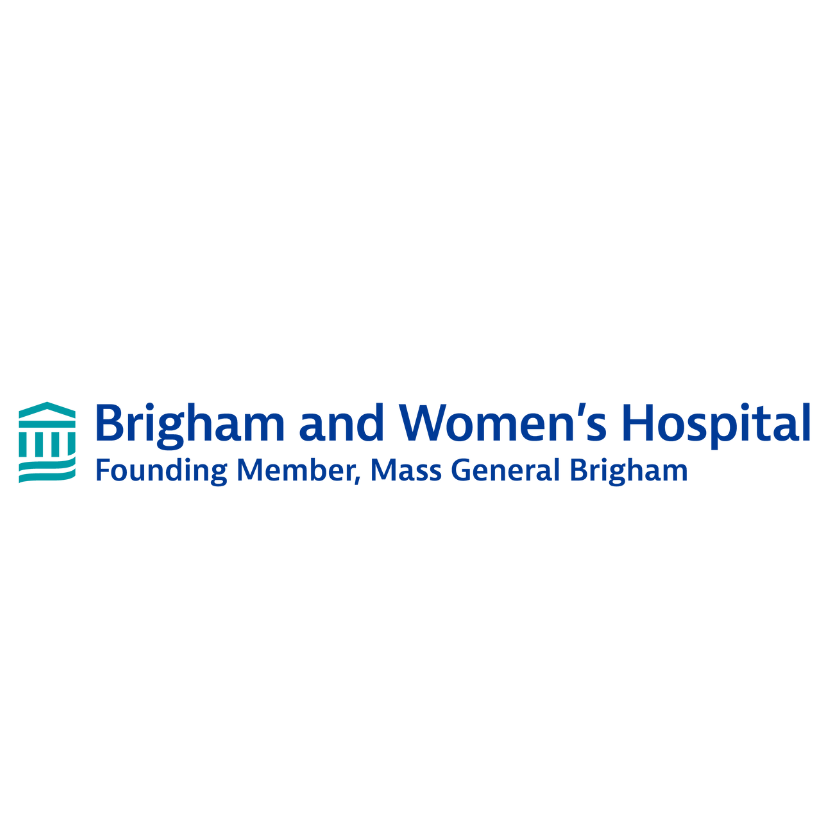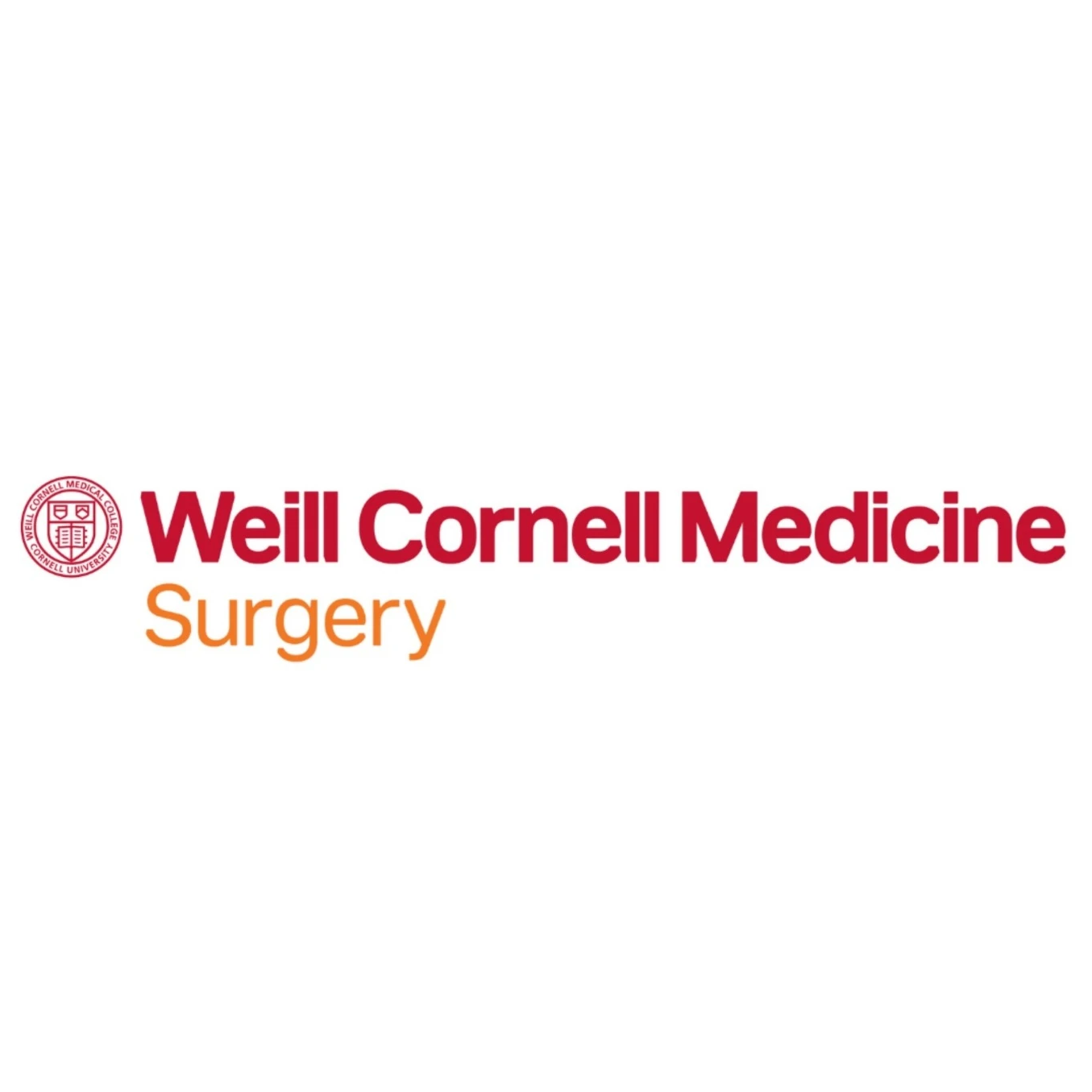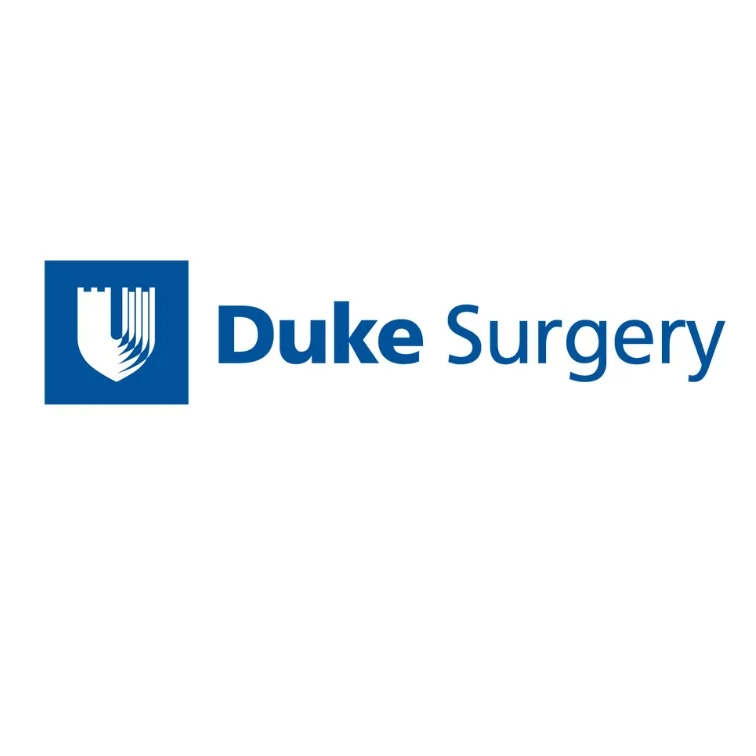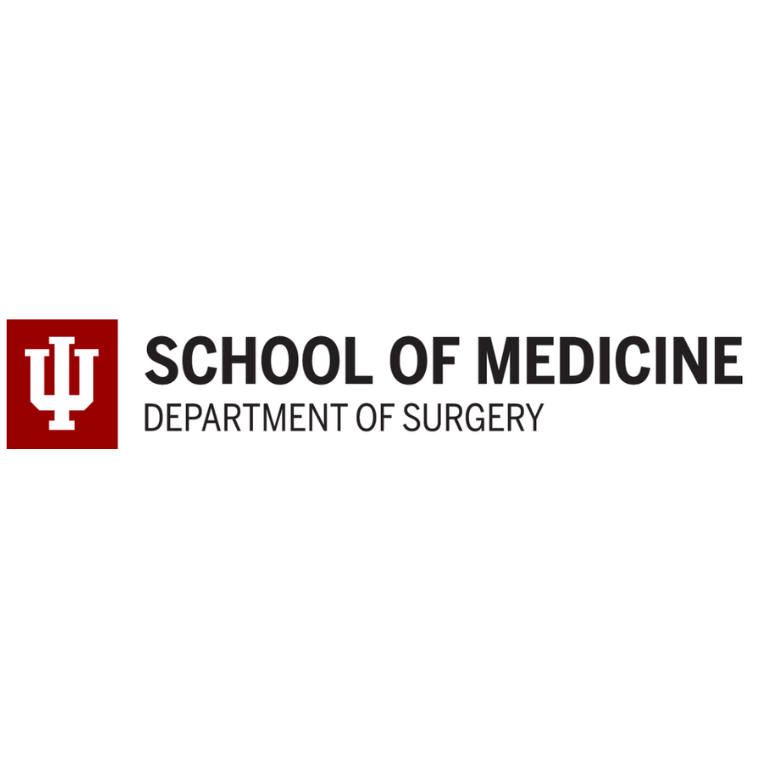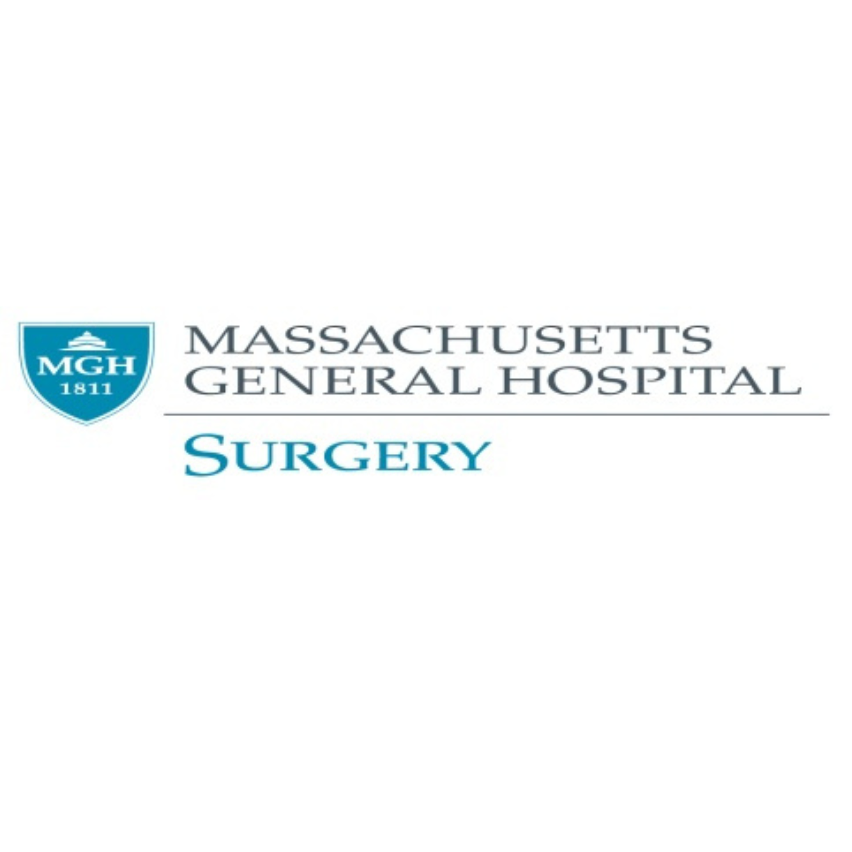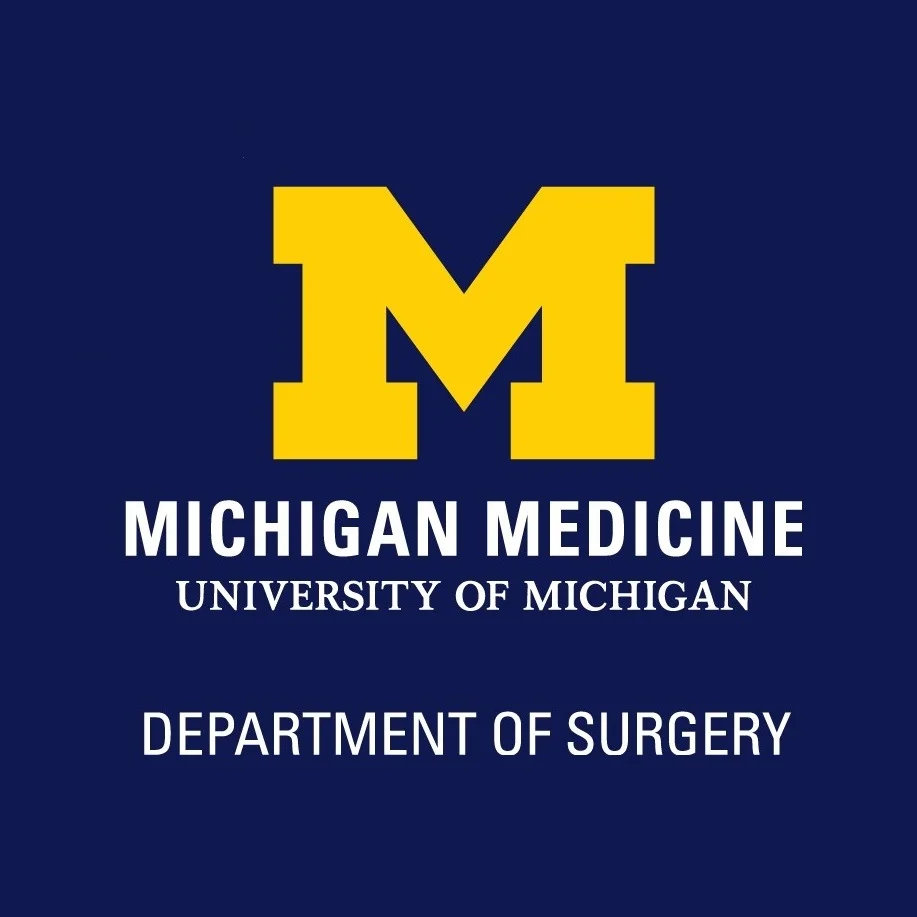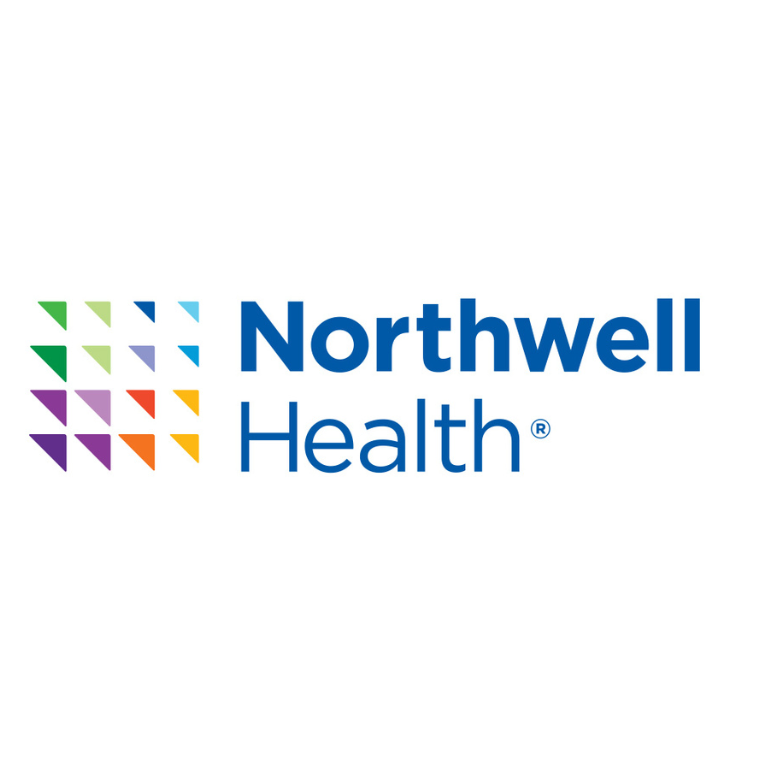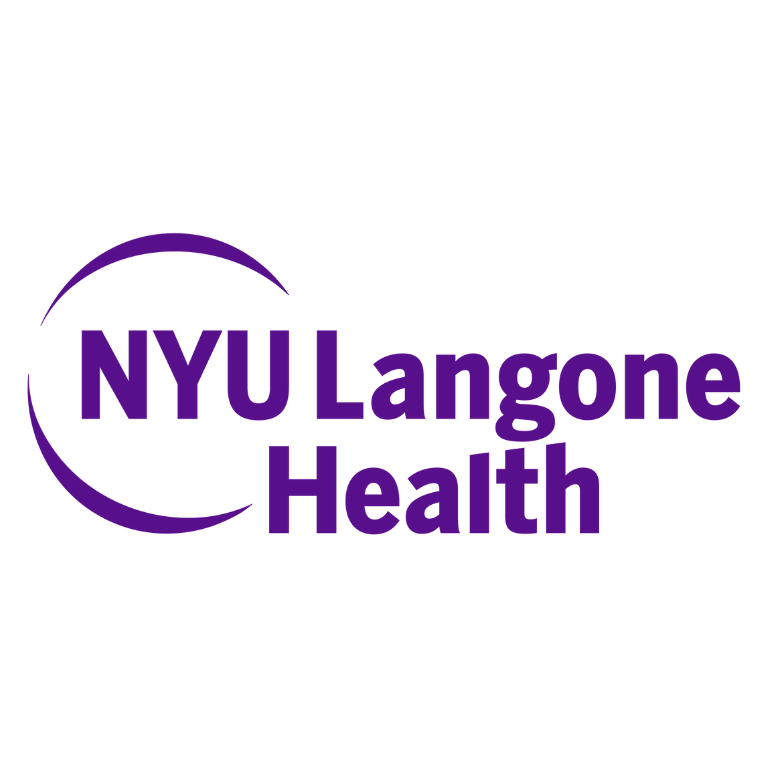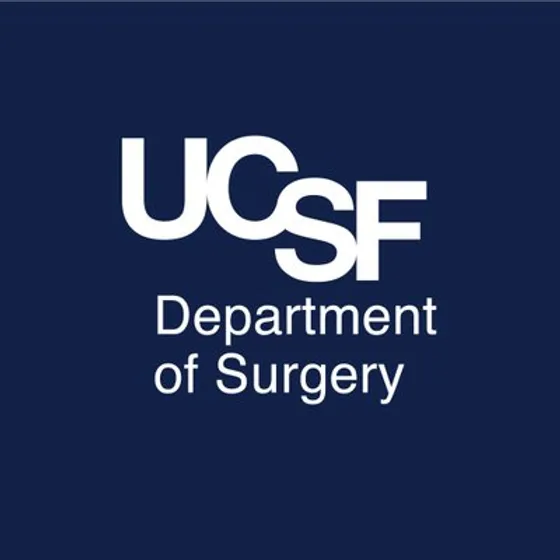Valley Health System PRISM Spotlight Interview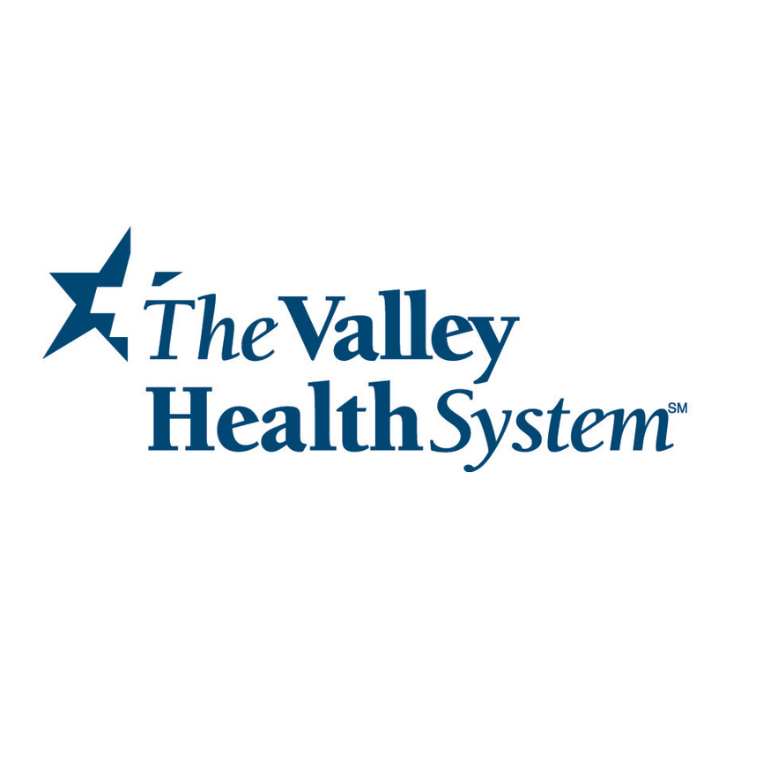 Join us for our February PRISM Spotlight Interview with Valley Health SystemWatch on YouTube | See additional content on our YouTube Channel
Watch on YouTube | See additional content on our YouTube Channel Valley Health System Prism Spotlight Interview Andrew Schlussel: Alright. Hello, everybody! My name is Andrew Schlussel. My pronouns are he/him/his, and I'm the current President-Elect for the Association Out Surgeons and Allies. And I'm privileged here to be joined by members from the Valley Health System. Dr. Keaton Thanki, Dr. Shelbie Kirkendall and Dr. Colton Lee. They're joining us today for our spotlight institutional membership interview. I am really honored to be able to host this for all of you. You all were our first community program to join as an institutional member at our highest PRISM level, which I think is really wonderful. And you all have also been recognized as an LGBTQ plus healthcare equity leader for the human rights campaign, which I really think is amazing. So it is a privilege to be able to have this conversation with you. So without further ado, I'd like to turn it over to the 3 of you. Give you an opportunity to tell us who you are and why it was important that Valley Health system became an institutional member for AOSA.
Why was it important for your institution to become a member of AOSA? Ketan Thanki: Andrew, thank you so much for having us. It's a privilege for all of us to appear in this interview with you today. And you know the greatest privilege is for us to be supporters especially early on for AOSA, get the word out about AOSA, and improve visibility and opportunities for you, physicians, allies and patients everywhere. My name is Ketan Thanki. I'm one of the faculty members here at the VHS General Surgery Residency in Las Vegas and also a colorectal surgeon and on top of being involved with diversity and inclusion efforts within the program, I also serve on the Medical Advisory board for our local LGBT chapter as does Dr. Lee who is also on the call today. And it's been an awesome privilege for us to get involved not only within our program, but also in the community improving visibility and care for LGBT people. Doctor Kirkendoll if you’d like to introduce yourself next. Shelbie Kirkendoll: Hi. My name is Shelbie Kirkendoll. I'm a resident at the Valley Health System, currently out on research at the American College of Surgeons. And my desire to get involved with AOSA was really to be a part of an outward facing group that can create a safe space for residents and fellows and faculty alike and just to have community. Colton Lee: My name is Colton Lee. I'm a newly graduated general surgeon from the Valley Health System. I do mostly general surgery and robotic surgery in a private practice setting in Las Vegas, Nevada. So I stayed local and work with our residents still. It was pretty important to me to get involved in residency and in this program mostly for mentorship, because it's not something that I was used to, and it was something that we were ashamed of when I was in medical school. And so it was a new experience for me to be able to have that sense of community as well and mentorship. So that was why it was important to stay involved. Andrew Schlussel: Wonderful! That’s really great to hear, and such a nice mix of members from your institution. I know we're a young program and a young organization, how did you hear about us, and what motivated you to then join?
How did you hear about AOSA? Ketan Thanki: So for me, actually, I heard about it, AOSA, for the first time through Clinical Congress. And Charles Chesnut who is our program director here at the general surgery residency also heard about AOSA,and was very supportive. And even before I had said anything, he approached me and said, hey, look, this is a new organization and we should definitely get involved and see what we can do as an institution to get involved. And so that was how I learned about it. I don't know about Colton or Shelbie. Colton Lee: Yeah, actually, Dr. Thanki and I discovered AOSA at the same time together. And it was by happenstance actually at the Clinical Congress with someone across the sign in a hallway. And we're like, Oh, wow! That seems kinda cool. Let's check out what it is. And it was one of their first meetings after the pandemic. And then there was a happy hour afterwards, and we got to meet a bunch of people in the community. And it was just like this veil was lifted from our eyes, and surgical community of all these people that were pretty cool that we wanted to make sure that we fellowship with. Shelbie Kirkendoll: And I actually, I think, heard it in conjunction at Clinical Congress, but also from Dr. Thanki and Dr. Lee as well. And you know I wasn't able to make it to my first meeting until around AAST this past year, and was actually able to do a social happy hour with some of the AOSA members at AAST and I was really fortunate to be a part of that and experience the community in person. And so I think that that helped me jump two feet first into getting involved in the organization. Andrew Schlussel: Well, that's wonderful. I'm glad that there's more open visibility of the organization. I found it serendipitously on one of these surgical websites, and there was a post by Out Surgeons, and I said, What is this? And here we are. So I think it's wonderful now that people are seeing the conferences and network thing. Networking, I think, is our one of our strong suits. So I'm glad everyone's starting to feel like they have a place, a safe place to go, so to say. So, talking a little more about the Valley Health System. Being that you've been recognized by the human rights campaign, what are some of the things that you do in the organization that you think fosters an inclusive working and learning environment through DEI or any other programs that the system has?
What are some of the things that you do in the organization that you think fosters an inclusive working and learning environment through DEI or any other programs that the system has? Colton Lee: So there's actually a JEDI committee that was started about 4 or 5 years ago, whenever I came into the residency program that really focuses on our interviewing practices and the recruitment of people from differing backgrounds and not just from the LGBTQ background, but people of color and other underrepresented groups, in medicine and surgery specifically. We're very, at least in my time in the program, and they still are, to my knowledge, very intentional about the people that we bring in and interview, and making sure that everyone has a place in our program and everyone can speak up. So it's put together a really unique group of residents from very different backgrounds that all bring something to the table. It's really interesting. Ketan Thanki: Yeah, to add to what Dr. Lee mentioned, what I think is really neat about the JEDI Committee is that we put aside normal filters or criteria that programs look for when going through and sorting residency applications and simply look at characteristics that we both faculty and residents think would help contribute to the community as a whole in the residency and foster diversity and so, as a result, I think we get or seriously consider applicants who may not have a good chance at other institutions because of, you know, perceived flaws in their application. We're willing to put those aside and look at how they would enrich our culture and our patient care really, ultimately through other characteristics. Which I think is really nice. Colton Lee: I did want to add to that as well, that our JEDI committee has a grand rounds that they put on every couple of months, and these topics, when I was in residency varied, we actually had a session about trans medicine from a surgeon in town that was really fascinating. We also have other people from other institutions that come in that give talks on JEDI related things. Andrew Schlussel: Is that a program that's spanned over different residences within the system or the surgery specific group? Colton Lee: It is a surgery specific group, but other people are invited to these programs whenever they go on. Andrew Schlussel: Or is that advertised out to applicants that if someone's looking for a program that openly shows that they are inclusive to their sexual identity or being under representative minority in medicine that they know going and interviewing there, that this is a an open, inclusive program? Colton Lee: To my knowledge, yes, it is. During interviews, it's actually advertised by Dr. Chesnut, as well as I believe it's on our Facebook or not our Facebook, our institutional page on our website, and then we also encourage our residents whenever they are here and they are able to interact with applicants to be open and honest about their experience and kind of their background if they're comfortable to share that with people too, so that everyone feels welcome here. And they recognize that it's not just talk, that it's actually something that we stand on as a principle. Shelbie Kirkendoll: And that's something I really loved about this program when I interviewed. And I interviewed with Dr. Lee, and something that we shared in our interview together, and it really made me feel comfortable and felt like I would have a home at Valley Health. Andrew Schlussel: Wonderful. In starting that program, I'm not sure how long it's been around for, but were there challenges that were faced to get it to where it is today?
What challenges did you face? Colton Lee: I will say, and Dr. Thanki is more involved with the administration of the program than I am at this point, but in my experience, when we were actually starting that program, it was welcomed with open arms. We have a very encouraging program director and our former program director was also very welcoming to applicants of different backgrounds, but Dr. Chesnut has really spearheaded the effort to make sure that everyone is welcome as well as our DIO took a lot of steps to support us. And even down to some players, including human resources for our hospital system, we had some real allies in that area that made sure that this happened for us. So Vegas is a fairly progressive city, and we've realized that since we catch from all over the country, that there are people that really find that it could be an important facet to our daily work life that we need people from different backgrounds, and everyone has something to contribute. Ketan Thanki: Yeah, I would just repeat what Dr. Lee mentioned that we've been fortunate to have support from the entire healthcare system all the way from human resources through GME and the DIO and our program director. And I think that's really helped us bolster all of our DEI efforts in every capacity which has been fantastic. Andrew Schlussel: Yeah, it's wonderful, I definitely think having buy in and support from the entire institution, from top down and bottom up makes it so much more easy and streamlined for everybody. How about if you don't mind speaking about it—have you had any personal challenges that either, positive, negative things that you've had in your career, that maybe now are better being part of the system that you're in?
What personal challenges have you faced that are better now in your current institution? Colton Lee: At the risk of talking over my colleagues, I would like to point out that I am from the South and have had some difficult experiences, you know, in my life. Related specifically to, you know, my sexual orientation, although a lot of other people had it a lot more difficult than I did, so I really was lucky to be in the situation I was. Once I made it to Las Vegas, I was really in a cocoon, a protected cocoon and encouraged be myself. So once I kind of stepped out of that it was surprising like how controversial some of the things about the way I dressed or the things I did outside the hospital were to some potential employers, but I found a group that really supported me now, and has encouraged my growth and welcomed my partner as a part of who I am, which has been very nice and very helpful. Andrew Schlussel: Wonderful! Any other personal challenges from Dr. Thanki, Dr. Kirkendall? Ketan Thanki: No, I would say, fortunately, I have not been at the receiving end, I think of, you know any outward or apparent biases or kind of misbehavior from people above me, or a senior to me that has inhibited my progress, or even just been detrimental from an emotional or wellness standpoint that way. But one thing I can say for sure is that one thing I see here in Vegas is the community overall is very progressive, very eager to invite people in with open arms, and I think some of that maybe stems from the fact that very few people are actually from Vegas. People tend to move here from elsewhere and come here for all sorts of reasons. A lot of people come here to work in entertainment and hospitality. And so I think it's just a very diverse group of people who are here for very different reasons and everyone's trying to make their own life doing their own thing. It really just fosters a sense of community and trying to help others come up in a new place. And also increases that open mindedness as well. Shelbie Kirkendoll: I don't have anything much more to add. I would second Dr. Thanki, that we have very diverse community in Las Vegas and I've not had any negative interactions or faced any challenges as far as barriers and employment or the workforce. Andrew Schlussel: I did notice looking at the Valley Health System website before the interview that you have a very nice LGBTQ+ healthcare section to it, to encourage patients who want to come to an institution that they know they'll be seen, heard, listened to. Where in the institution did that start from? And if from the surgical program itself, where are you incorporating on that? And how do you recommend an institution that's not as vocal start getting themselves out there, so the community knows that they're as they're as open as you all are?
What do you recommend to other institutions to become more inclusive in the community? Ketan Thanki: That's a very good question. I think we are fortunate in that UHS, which is the parent company of Valley Health System is fairly progressive, pro-LGBTQ, employees as well. And then, you know, as we mentioned before, just within the system itself. I think we have a lot of support starting from the top down. Dr. Chesnut, our program director. So he might actually be able to chat a little more like. Ketan Thanki: Sorry, Charles, and I'm throwing into this in the middle. Andrew Schlussel: Hi, Andrew Schlussel. Pleasure to meet you and thank you for joining us. Maybe we'll just take a segway real quick and give you a chance to introduce yourself. Will you let us know how you found AOSA, and why it was important for your program to be part of us as an institutional member. Charles Chesnut: Yeah, absolutely. So I'm Charles Chesnut. I'm the program director of the Valley Health System General Surgery Residency. I was made aware of AOSA by actually one of our former residents, who’s on the call, Dr. Colton Lee. We were at the American College of Surgeons- he probably already told you the story- a couple of years ago, and brought me by the booth and you know Colton and I have been with this program since it started in 2019. And he just knew, I think, that this was something that we wanted to be a part of, because we work really hard to recruit a diverse workforce. And diversity and inclusion in all of its forms is not just a buzz word that we use here, it's really inherent to the fabric of what our program is. And so AOSA fits with that phenomenally well, so came to the booth, picked up all the super cool swag, and if I was in my office you could see the AOSA sticker in the background, but I'm squatting in somebody else's office right now. But yeah, we looked into the membership, we looked into joining, and it was important to us that we be part of one of the foundational memberships just because, you know, Las Vegas is a great town, we are proud of the work that we're doing here, and we think that partnering with AOSA is just gonna help us to recruit the next generation of surgeons. It’s gonna really help us change the direction of surgery and healthcare in Las Vegas and around the country. Andrew Schlussel: We appreciate the support of the program, and it sounds pretty impressive with the JEDI Committee and what you've done to foster an inclusive place for residents to come to. One thing we were just talking about, I was saying that I was very impressed with the Valley Health System site for LGBTQ+ healthcare, and I was just interested on what the surgical program does to be part of that program and any advice to institutions that aren't as publicly known for LGBTQ+ healthcare and how to get started with something like that? Charles Chesnut: Yeah, I think Dr. Lee and Dr. Thanki are probably the two best to answer that. But I can talk about the awesome things that they've done. You know, institutionally, if other programs are interested in LGBTQ healthcare, I imagine that they function in a city that has some organizations that are probably underfunded, underappreciated, under-recognized, that are already serving this population. And I think that that's what Dr. Lee and Dr. Thanki have done already is to partner with our LGBTQ center of Southern Nevada and some other resources to just help support their patients. But also you know, there's a great network of LGBTQ physicians here in Las Vegas, who are already serving that patient population, or have a passion for the patient population. I think just you know, networking and getting to know those physicians, and honestly just advertising it, bragging about it, you know. Just talking about how I mean, this is really meaningful work. This is super cool stuff that these two surgeons I work with are doing so you know we're pretty proud of them. And that would be my recommendation. Ketan, do you have any other suggestions? Ketan Thanki: No, not really. I mean, I think, getting involved, having, faculty and involvement in organizations locally is a great place to start. That's what Colton and I did. We both got involved. Getting involved with the Medical Advisory board of the LGBTQ center here and through that I think a lot of other opportunities have arisen. And we're already discussing with this center, getting resident and medical student involvement even potentially in the future clinics there. So I think that's one way to start. And then, of course, looking for support in higher places. Colton Lee: Yeah. I would like to echo that as well, that there are people that are working side by side, that you know, program directors or residents may not recognize are in the community. There's always an anchor in the program. There may be an ally once you find one person you can build on that and go from there. Andrew Schlussel: Wonderful. Maybe talk for a little bit here about some advice you can share as an individual, maybe from a resident level, from a new grad level, and more of a senior attending level of what you would say to someone that's out there looking to be part of an organization where people are similar to themselves, and even if they're not being part of an inclusive hospital system as well.
What personal advice can you share? Shelbie Kirkendoll: I guess from a resident level, AOSA is a great example of a community that you can get involved in from the resident level. I'm part of the Education and Outreach Committee and attend their meetings and get involved in projects that they're working on. So it's attainable at a resident level to get involved in AOSA at least, if there's not something local to your hospital system. Charles Chesnut: Yeah, I was gonna take a different perspective on the question. So if I misunderstood the question, let me know. I have a fortunate opportunity to counsel and mentor students and residents pretty frequently and honestly, it's a part of my job that I value the most. My wife asked me, “What do you enjoy the most about your job?” And that's like truthfully, it's helping people make the right decisions for them. So you know, when I in the past have had the opportunity to counsel some of the members of the community, at least through the interview process, you know my biggest advice is be yourself. We all put on armor that protects us, that protects our vulnerability from you know, from the attacks from outside. But honestly, I think when we put that armor on, it inhibits us from achieving our full potential. So I tell them, be yourself. It'll help you find the program that is the right program for you, the right place for you to thrive in, and you know it may be risky, it may be scary, especially walking in as a student into surgery interviews where we know that the majority of surgeons are, you know, white, older Cis head male. Right? So it's difficult to walk into that. But truthfully, I think if you can walk in being who you are and they see you for who you are, then it's gonna help them be more genuine as well, and then you'll find yourself in the right place. So that's the advice that I give students and residents for fellowship applications and interviews, and I hope that they follow it. And that's something that we really look for in our residency interviews is people being genuine. People who are willing to maybe take a chance and be vulnerable. We've had great success with bringing in residents like that. So that's my advice. Colton may totally disagree with me. But he's definitely got a better resident perspective than I do. Colton Lee: I think. I mean, my perspective is all about mentorship. And it's about finding those people and that person and you have different mentors for different reasons. So Dr. Chesnut was a great mentor to me for one reason, while Dr. Kirkendall believe or not is a mentor to me for another reason, and if I have any issues or questions and Dr. Thanki, of course, also a great mentor but all in different facets of my life. And if I have an issue or a question about something that I'm dealing with, and there's a right person in my life. I built a beautiful cocoon of people to like, be able to actually go after and provide me feedback on if I'm being reasonable or unreasonable, or if an issue is something that needs to be addressed and get different perspectives. And once you start finding those people and building on it whether they're in the community or not, you're gonna find your place that you belong. Believe it or not, you build it for yourself. Shelbie Kirkendoll: I would also echo what Dr. Lee and Dr. Chesnut said. Maybe I misunderstand the question, and correct me the first time around. But I would echo what both of you said and you know I spoke about being a part of the community in my personal statement for residency, and I ended up at a program where I would truly feel at home with the people that I work with. I know that not everyone is comfortable with being out and is not out for many reasons. But if you do feel comfortable, I would again encourage people to like you said Dr. Chestnut, be themselves and be proud of who they are. Andrew Schlussel: Do you all feel that you've seen major growth in DEI at Valley Health in general, or do you feel like you're attracting people that are more comfortable with themselves, so, therefore, the atmosphere of the institution is more inclusive?
Do you feel that the people you are attracting to your institution has made your institution have more growth in DEI work? Colton Lee: I have to say that I don't know that growth is the right word that I would use for it. I would say utilization of the resources that were already available, but were under-utilized: recognizing the people that you have in your corner, building something that is important to each of us, and maintaining it afterwards, which is difficult. But you know the building blocks were already there. It just took the right people, at the right place, at the right time to put it together. Charles Chesnut: Yeah. And from my perspective, which is a little different from Colton's, I have seen a huge amount of growth, and I think it's been growth from…you know, we serve a very diverse patient population, our hospital work staff is really diverse, but the physician staff is historically not. And I think that when the program started there was a little bit of, not discomfort, but just, you know, lack of familiar with what residents are, and the diversity that we had in our class. And now I think it's just expected. I think it is. This is the norm, right? It isn't, Oh., you know they they've got a really diverse class and that is impressive. It's oh, this is a representatively diverse class, just like it was the year before and the year before that. Now the interesting thing is when I go to the program director meetings, I have program directors from large academic programs saying, “How do you recruit such a diverse residency class?” And you know, that's something I wish I had a better answer for, because we still are an outlier, I think, as we look nationwide for surgery residents. But yeah, there's been a huge amount of growth here, and I think that the hospital staff sees it. And you know, I was in the operating room, actually the scrub tech I'm working with today, a couple of years ago, he said to me, “Hey, Doc, you got all these diverse residents, but I don't see any Filipino residents. How come? It’s all the nurses and techs. We're all Filipino. How come you don't have any?” I took that seriously. And now we do have Filipino residents, because that was a portion of the population that is severely underrepresented in surgery. So yeah, I think it's expected there's been a lot of change, and it's been really cool to be a part of it with all these other people. Andrew Schlussel: I think it's really wonderful that everyone at the institution feels comfortable about speaking about something like that where your scrub techs are asking you about if a minority is being represented, I think just speaks miles to what the institution really feels is important. And also to your note, Dr. Lee, I think that's really interesting about the building blocks. I think a lot of these institutions have the programs there and people don't necessarily know that those are what is needed to progress things forward, and sometimes you don't need to start from scratch, and you don't even know about it. Colton Lee: And I would like to say that's very intentional, right? So that comes from the top. And Dr. Chesnut creates an environment where people are welcome to speak like that. And I try to do the same in my operating room or in my, you know clinic, where people can speak up and share their thoughts. That doesn't just happen. There are a lot of environments where people don't feel comfortable saying that even within our own institution, right? We're not perfect but by being intentional about it and creating that sort of culture and environment, it's been really fruitful. Andrew Schlussel: Wonderful. Another advice question. If you had the opportunity to tell your younger self something different about the way you would have gone through training. I know there's a lot of things being a queer surgeon that I probably would have told myself 10 years ago. What would you tell that younger self, or imagine a younger medical student that's in the same position?
Advice for your younger self? Colton Lee: I'm just laughing, cause I'm thinking-do anesthesia, but no I think be yourself sooner, be more comfortable sooner, and seek out that mentorship, and just start on the road to being comfortable in your own skin at an earlier age. Charles Chesnut: Yeah, I'm not gonna answer this question, but I'm gonna just piggyback off what Colton said. And somebody asked me the other day, talk about one thing you’re proud of a relationship you have with one of the residents and Colton I shared with them that one of the most enjoyable things that I've ever witnessed in my life is watching you grow from when you started this residency as a young, gay man from Mississippi, who was here in Vegas, in a place where I think you finally were starting to feel like you belonged and to watch you grow in that belonging into bringing you into the surgical community where you also now belong, here in town. I mean, that's one of the most meaningful things I've ever done in my career. So I agree with what Colton said in that advice is, be yourself as early as possible. I can only imagine cause I cannot personally attest to it, and how difficult that is to be is to be yourself. Ketan Thanki: I think I would reiterate the same thing that Colton said and then another thing is to start early and mentorship, I think, can come from unexpected places and unexpected forms. It's not necessarily finding the senior-most, or the person who's in administration. Mentorship can come from people who are lower than you in the hierarchy. Shelbie Kirkendoll: I don't know that I have much more to add, but I would agree with what Dr. Thanki and Dr. Lee said. That's what I would tell my younger self as well. Charles Chesnut: I think one important thing to point out is, you know, Dr. Lee mentioned that Dr. Kirkendoll was one of his mentors. She came in as a first year resident when he was a PGY-4. So, to look at what society defines as your subordinate as a mentor, I think is a is a phenomenally mature perspective. So you know, there's mentorship in all forms, in all different places. So I think it's cool that he recognizes that. Andrew Schlussel: Wonderful. So I really appreciate that you all feel that AOSA has become a wonderful networking organization community in a safe place. But what would you like to see from us in in the future? As an institutional member and as an individual?
What would you like to see from AOSA in the future? Ketan Thanki: Actually, Shelbie and I were just discussing this last evening. What we were thinking, you know, would be really fantastic is if outside….AOSA so far is quite well represented, or visual or visible so that's really good. But there are a lot of others societies, where I think we could really improve our presence. So I think either like chapters or some sort of a outreach organization to facilitate DEI efforts within other surgical societies. I think that would be great starting point. For instance, the ASCRS for colorectal surgery for I think that would really be beneficial, because there's so many smaller kind of grassroots movements within each of those organizations. That I think could be bolstered to extend this organization. So creating chapters that can reach out to get to any programs, and having more PRISM or funding members. But I think that if every GME program in the country could have representation that would be pretty good. Shelbie Kirkendoll: I really second that and I again speak to my experience at the AAST and seeing the amount of involvement that AOSA had on social media around the conference, and seeing how well everyone was connected and engaging in social events that AOSA was putting on at AAST, I thought was really cool and allowed for networking within the trauma community itself. And I think there's a lot of other surgical societies would benefit from that sort of mentorship within those specialties. Colton Lee: So I have 2 things, both of which, you know, AOSA is doing a great job of already. But first is maybe some sort of curriculum for circle training programs to be able to understand what issues are important in the community and how to be an ally, right? And so, maybe a Powerpoint or a virtual grand rounds on these and what pronouns are, and why they're important to certain people, or these are surgical issues specifically related to trans men or trans women and things like that. The second is financial support from the members, right? So at the risk of sounding prideful or anything like that, one of the things that was important to me was to get medical students and residents to ACS in order to get to network in the same way that I did. Because I think if they do it early, they may find mentors that otherwise they would never be exposed to. And I mean, you know, people who are in community programs that may wanna do academic medicine or fellowships and people that are in academic medicine and wanna know, you know what it's like to be in the community and things like that. We started a small scholarship with financial support to send a couple of medical students to ACS, and it wasn't enough to completely offset their trip, or anything like that, but at least it got them in the room with people that they can meet and relate to, and have a face and a name. Maybe hopefully, for one or 2 people that they can reach out to, and they need guidance. So I'd like to see that expanded in the coming years be able to send more medical students to ACS, and residents to be able to get them mentorship. So hopefully that support comes from members. But also that support gets to come from the fees that PRISM facilities and institutions send, and so things like that. Charles Chesnut: Yeah, I think from my perspective. During the interview process, I ended up doing a lot of AOSA advertising with our medical students that we interviewed. So I think just continuing to work on sessions, mentorship sessions, sort of, you know, in a virtual platform for groups of medical students who are interested. I think that would be valuable both for them to help mentor them in their career. But also when they get to the program where they're gonna eventually match, they can go to their program director, or whatever mentor they seek and say, “Hey, you guys should take a look at this AOSA thing if you haven't already.” That just seems like would help build the network and also help mentor the next generation of of surgery residents. Andrew Schlussel: Those are all really wonderful ideas. Some are kind of in the works a little bit, but some are not and I really like, and I really appreciate all the advertisement you're giving for us to coming through your program. Really appreciate it. I'll leave it here with any final thoughts, anything you’d like to ask me, or anything else you'd like to say before we conclude for the afternoon.
Final thoughts? Colton Lee: I'm curious what your goals are for PRISM institutions. What do you need from us going forward? How can we contribute? Andrew Schlussel: I think, just getting the ideas of how you've become so successful and we're gaining that from these interviews with all the programs. And just every program from community-based and academic-based has its own little niche and own little pieces of success. And I think if we can provide that information really globally at this point, it will help places that really struggle to start any programs, at least get something going and getting the conversation out there. And I think, having the names associated with that has been really beneficial to us. Plus, it's wonderful because you have your residents that all get to be members through the institutional program. It just gets the networking and the name, and the more people talk about it the better chance other people who may be at a small Midwest Southern program place where they may be the only gay or queer person around gets to know about it, and I guess to be one step closer to feeling included within medical and surgical training. So really appreciate it. And I'm really hope that anyone that listens to this knows that your program has a wonderful message, and I hope they all get the opportunity to at least rotate and feel what I would wanted to felt whenever I went to residency now years ago. So it's really really wonderful. And anything that AOSA can do for Valley Health, please, I look forward to a long, long standing relationship going forward. Charles Chesnut: Yeah, absolutely. I wanted to throw one more thing in just because, you know, sitting here as an ally. You know, I look back. If I could do things differently. Right? I think that you know, to potential allies out there in the future my recommendation would be don't be afraid to step into it. I know initially I was, you know, sort of afraid to be viewed as an imposter and was afraid that I didn't know the right things and I wasn't gonna say something right. And honestly, I just kind of stepped into it. And I think that as a straight Cis head white man, right? I've got an opportunity to speak into rooms that others may not. You know, to further the cause, and I think that since I sort of shook off that fear of being imposter, and sort of stepped into these conversations and learned more. I think that if you step into them with love and a goal of understanding, I don't think that anybody has ever mistook my questions, or my missteps, or my misuse of pronouns as malicious but as a guy who's trying to learn and try to do better and just try to further cause and creating a diverse residency and inclusive environment. So that will be my advice is again start early. Don't be afraid. And you know there I was, I questioned what a white man could do to help further diversity, and I think that we all can do that. It also helps that I've worked alongside some great people like Shelbie and Colton and Ketan and some of the other residents that we've had come through that have just helped to educate me so much. And it’s just been really fun and been really cool, so proud to be a part of it. But to other future potential allies out there, just step into it and do it and do whatever you can. Andrew Schlussel: Thank you for that. I don't think I could top that statement. So I really appreciate it. I'll end it there if that's okay with everybody. <END TRANSCRIPT> |



